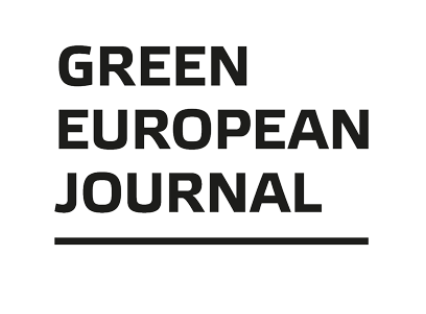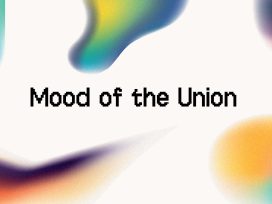While climate change is high up the media agenda, its impacts on food and water systems remain under-investigated. But as the end of abundance becomes an everyday experience in Europe, we are thinking more closely about how our food reaches the table.
Lower yields, higher prices and struggling communities are just some of the social and economic costs of water scarcity and extreme weather. But how and what we eat is also inextricable from identity, tradition and cultural life. Food and water systems under pressure bring these questions to the fore.
The series ‘Breaking bread’ explores political, social and cultural aspects of food and water across European societies, highlighting the dangers of a parched planet while picking out some seeds for a fair and sustainable food and water system to come.
An editorial collaboration between Eurozine and Green European Journal, with the support of the EU Parliament to the Green European Foundation.
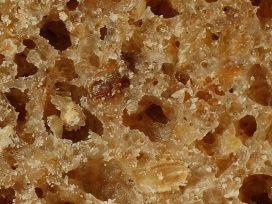
In collaboration with

The crux of different peoples’ history, and of humanity as a whole, is always food and hunger. In the final analysis, it’s the stomach that counts.
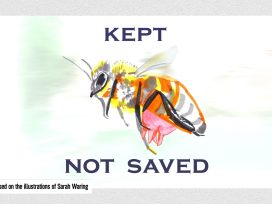
Contrary to popular belief, not all bees make honey. In fact, less than 4% of the total population of 20,000 species around the world do. As we rush to #SaveTheBees, many don’t know how, or which ones face the real threat of extinction.
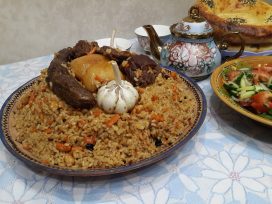
From plov to pilaf, hundreds of versions of the same charismatic dish are a testimony to civilizations and culinary memory, from Central Asia to east and south-east Europe, and across several empires.
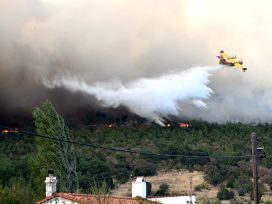
Recurring flooding and fires are putting Greece’s entire ecosystem at risk. In 2023 regions crucial to the country’s food supply were particularly affected. After a decade of severe recession, another national crisis appears to be only a matter of time.
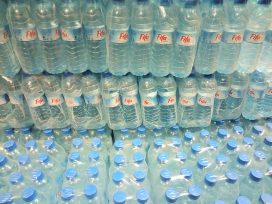
Water use has always been an indicator of social relations. In western societies, most treat drinking water as a simultaneously infinite and hyper-individualised resource. But plastic pollution and the climate emergency are forcing us to question our consumption habits.

If we define culture as a set of values and practices around which communities identify and cohere, then few things are more cultural than food. Where else is the narcissism of small differences greater than in matters gastronomic?

The alchemists of Ludwigshafen
Conjuring food out of air and coal
Society’s fatal dependence on artificial fertiliser has its roots in the industrial revolution and the western world’s search for food security. Today we are on the brink of another breakthrough in human nutrition: but as history shows, new food technologies have unforeseen consequences.
Veganism, the ethical choice, was once born of necessity. Today’s regular omnivore diet was previously a luxury for the wealthy, ill afforded by peasants. Preserving food was a means of subsistence. Can pickling and jamming traditions, now making a comeback, be recognized for their cultural heritage in addition to gentrified sauerkraut and cherry compote recipes?
Humanism has elevated humanity above its natural condition, but our relationship to animals remains in a state of war. The legally sanctioned slaughtering machine now operates globally, with the poultry industry in particular wielding huge market power.
In the 1990s, Ukraine again became one of the world’s leading grain exporters after decades of Soviet agricultural mismanagement. It retains this status despite the major disruptions to the European grain market caused by the war.
There seems to be too much of it, yet still too little. The vital compound that enables life on Earth is often taken for granted. As we go about our bustling urban lives, we begin to lose grip of what it demands of us. New talk show episode premiere.
During communism, extensive irrigation systems turned the regions along the Romanian Plain into major producers of fruit and vegetables. But when the infrastructure collapsed, so did the ecosystems built around it. Today, farmers are digging wells to deal with desertification: a risky strategy.
Radical reform is needed to make Europe’s agricultural sector financially sustainable and environmentally resilient. Yet Europe’s biggest farming lobby, together with the EPP, opposes any policy inimical to the interests of large landowners.
Conventional market-led solutions to water scarcity in the Arab Mediterranean, above all mega-projects such as dams, support state agendas and reinforce inequalities in access. Water wars are not inevitable but the result of bad management.
The Pianura Padana is home to a third of Italy’s population and generates nearly half of the national GDP. But over-exploitation, pollution and excessive land consumption are exacerbating the effects of climate change in this politically neglected region.
